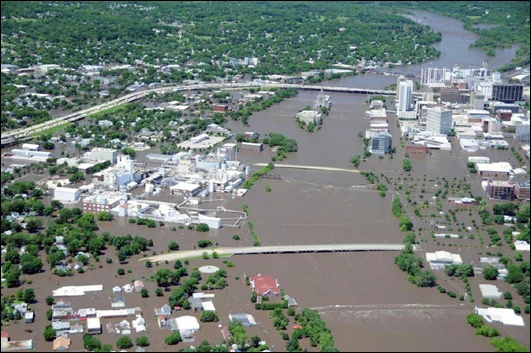
The Mississippi River watershed routinely experiences severe flooding events, causing damage to infrastructure, agriculture, the economy, and the environment. Now, climate change is exacerbating this flooding, guaranteeing that the situation will only get worse. A new, radical course needs to be charted.
2019 Congress speakers and delegates will discuss impacts of the new climate normal, re-imagine management for different sectors of the watershed, and examine the stubborn and long-standing impediments to sustainably managing resources within the watershed.
Program topics included:
- a historical overview of how we have transformed the Mississippi River;
- projected increased precipitation and severe storms in the watershed;
- flood control and risk reduction;
- implications of unwise land-use policies in our floodplains;
- emerging strategies and tools for reducing degradation of ecological resources;
- lessons in river management from the European Union; and
- overcoming longstanding impediments to effective management of the watershed.
